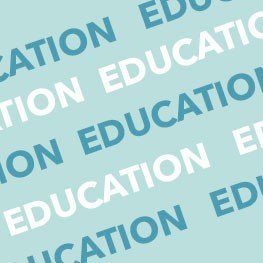
Rich literacy and numeracy environments in the early years give children a head start on their academic careers and promote skills that will serve them throughout their lives.
Let’s face it, being a parent is hard work! Finding the time to be a good parent is a real challenge when coupled with the demands of a career, the rigors of maintaining a household and meeting the physical, mental, social and spiritual needs of your children.
Recent research on the brain and early childhood development puts a greater responsibility on parents to provide the kind of environment where literacy and numeracy are valued and systematically approached from the time that children are born. Those first sounds that your child makes are the beginnings of a lifetime journey to become proficient communicators. Rich literacy and numeracy environments in the early years give children a head start on their academic careers and promote skills that will serve them throughout their lives.
More Than the 3 R’s Literacy and numeracy skills are more than the ability to read, write and do arithmetic. Today’s literacy demands that students be able to read more text and construct meaning from a range of complex sources that often include more than text messages (i.e. Internet, Television and other popular multi-media mediums). It is important for parents to focus on a holistic and integrated approach when communicating, reading and playing with your child.
Children need to be able to do more than read a word or a sentence, they need to understand. The true gift of literacy for children and adults is to be able to question the message, integrate knowledge into what is already known, and enjoy the wealth that words, pictures and print can bring to life-learning. Parents have an opportunity to give their children a head start in becoming successful communicators in the language of numbers and words by engaging their children early, asking them lots of questions, listening to their responses and modeling what they believe is important. Literacy is a journey in learning that begins in the first months of life and parents are the first teachers!
Talk with your children. Ask questions. Make them think.
Children begin to experiment with language as babies. They listen to and imitate the sounds, tones and rhythms that they hear in their environment. Infants learn to ‘read’ the gestures and facial expressions of significant people in their lives. Even the youngest toddler can understand the message that Mom’s scowl, a wagging finger and the word ‘no’ are trying to convey. Toddlers and young children learn to use symbolic language to convey meaning — sounds become words, words have meaning and meaning is conveyed in a variety of ways.
The following is a list of practical, easy to implement suggestions for busy parents to make literacy and numeracy a natural part of family life.
Make Use of Travel Time!
• Sing, recite repetitive rhymes, poems or tell stories while you are in your car
• Ask children to notice environmental print road signs, billboards and commercial signage
• Get them to notice the alphabet in the environment ? i.e. the first letter in Esso or Co-op
• Count things that they can observe in their environment ? green cars, the number of bus stops between home and school
• Have children name things as you pass them
• Play word games and counting games in the car
• Discuss and share the experiences
• Look for shape in the environment
Engage and Involve Children in Household Activities
• Have them help writing grocery lists
• Help with cooking, reading recipes, measuring etc.
• Read directions
• Count place settings as they set the table
• Empty the dishwasher, counting and categorizing cutlery
• Save milk caps for sorting and counting
• Sorting laundry (find pairs of socks)
• Share the work load
Find Some Quality Time
• Read together
• Discuss TV shows that you have watched together
• Make the why question part of what you ask your children
• Eat breakfast or supper as a family
• Find play time - color, have family game nights
• Read a magazine together
Maria is the Supervisor, Teaching & Learning, Elementary for the Foundation for Future Learning.
Calgary’s Child Magazine © 2024 Calgary’s Child